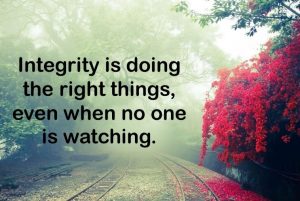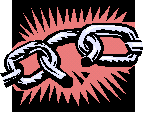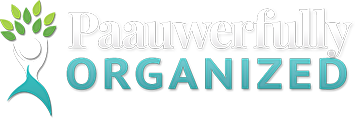August is a big month for weddings. Our daughter got married on August 4, and my husband and I celebrated our 37th wedding anniversary on August 15. Someone asked me what the secret is to staying married to the same person in an age when more than 50% of marriages end in divorce. Having commitments that matter rest at the core.
In 1981 I sang a song to my husband at our wedding reception, and I sang the same song at our daughter’s wedding: I’ll Never Say Goodbye – the theme song from a 1979 movie called “The Promise.” The lyrics to the song are all about commitments that matter.
Commitments form the core of our personal and professional relationships with others. That’s why it’s so important to behave with integrity and sincerity when we make commitments to others…in marriage and in life.
Part of the work that I do as a coach is to help my clients evaluate and refine their commitments so that they can effectively make and keep commitments with themselves and with others. I’ll share some tips that may help you to evaluate, refine, and honor your commitments to yourself and to others.
Recommit or Renegotiate!
 Most of the people I know are over-committed. They’ve bitten off more than they can chew! As we gear up for the fall — back to school and back to work after summer vacations — now is a great time to think about the commitments that matter the most to you and to renegotiate the commitments you’ve made that are not as important, especially if you know you will not able to honor all of them.
Most of the people I know are over-committed. They’ve bitten off more than they can chew! As we gear up for the fall — back to school and back to work after summer vacations — now is a great time to think about the commitments that matter the most to you and to renegotiate the commitments you’ve made that are not as important, especially if you know you will not able to honor all of them.
As you reflect on your personal and professional commitments, ask yourself these questions:
- Why did I make this commitment?
Your reasons and motives for making commitments change as your family, career, interests, and skills change. Loyalties shift and resources vary. Although this is natural, unless you take time to review your commitments you may continue to show up in places that are no longer a good match for you. - What values or priorities am I expressing with this commitment?
It’s wise to check and see if you are honoring your own values or someone else’s. Language can be key here. If you hear yourself saying, “I should” or “I have to” a lot, this is a big red flag. Check in with yourself and ask, “Do I choose to?” - What exactly have I promised?
Review commitments to see if you know the extent and duration of your promises. This will help you to keep commitments manageable. When you make vague or nonspecific commitments, it is easy to expend energy and attention on a continuing basis without experiencing a sense of completion or satisfaction. Put some parameters around the commitments you make. If the commitment has the potential to be ongoing, be clear about the length of time you are able to assist. - Do I have the resources to keep this commitment?
When you’re clear about exactly what you are promising, it will be easier to tell if you have the resources (time, money, space, tools, etc.) to keep the promise while also managing your other responsibilities.
There is no “TRY”!

When you hear yourself say, “I will try to do this,” ask yourself: Do I choose to do this? There is no TRY to. There is only DO or NOT DO. Make conscious choices as they relate to your actions, every moment of every day.
When faced with an obstacle, you can choose to look at the obstacle and curl up in a psychic ball, saying “I can’t do it!” Or you can look at the obstacle, examine it from various perspectives and say, “Okay, this part looks pretty ominous, but this part over here…I think this has possibilities, so I will DO this and see what happens.” In other words, although you may not be able to commit to the outcome, you can commit to your intentions and actions.
Are your commitments a reflection of your values and talents? Are your commitments helping you build the relationships you want or are they creating obstacles to building those relationships?
Give yourself time to reflect on the questions above and then renew or revise your commitments accordingly.
Are you living in integrity?
 We all have circumstances that come up that make it difficult for us to honor our commitments to ourselves and to others. When we don’t honor commitments on a regular basis, we are not living in integrity.
We all have circumstances that come up that make it difficult for us to honor our commitments to ourselves and to others. When we don’t honor commitments on a regular basis, we are not living in integrity.
What is integrity? The thesaurus provides these synonyms: honesty, truth, honor, reliability, uprightness.
Stephen Covey uses a wonderful metaphor to illustrate integrity. Here’s an excerpt about building an Emotional Bank Account, taken from The Seven Habits of Highly Effective People:
We all know what a financial bank account is. We make deposits into it and build up a reserve from which we can make withdrawals when we need to. An Emotional Bank Account is a metaphor that describes the amount of trust that’s been built up in a relationship. It’s the feeling of safeness you have with another human being.
If I make deposits into an Emotional Bank Account with you through courtesy, kindness, honesty, and keeping my commitments to you, I build up a reserve. Your trust toward me becomes higher, and I can call upon that trust many times if I need to. I can even make mistakes and that trust level — that emotional reserve — will compensate for it.
But if I have a habit of showing discourtesy, disrespect, cutting you off, overreacting, ignoring you, becoming arbitrary, betraying your trust, threatening you, or playing little tin god in your life, eventually my Emotional Bank Account is overdrawn. The trust level gets very low. Then what flexibility do I have? None.
Covey describes six ways to make deposits in an Emotional Bank Account. One of those six ways is by keeping commitments. Breaking commitments represents a major withdrawal from an Emotional Bank Account.
The Weakest Link
 Years ago, a trivia game show made its debut on television. It was called “The Weakest Link.” Contestants were presented with a question. If answered correctly, the entire team earned money. At any time, the team members could put the money accumulated by correct answers into a “bank.” One incorrect answer and the team lost all their un-banked money. After each round, the team voted one person — the weakest link — off the team. The grand finale was a playoff between two remaining team members for the big bundle of money generated by correct answers and timely banking.
Years ago, a trivia game show made its debut on television. It was called “The Weakest Link.” Contestants were presented with a question. If answered correctly, the entire team earned money. At any time, the team members could put the money accumulated by correct answers into a “bank.” One incorrect answer and the team lost all their un-banked money. After each round, the team voted one person — the weakest link — off the team. The grand finale was a playoff between two remaining team members for the big bundle of money generated by correct answers and timely banking.
In actuality, those who serve as the weakest link in our professional or personal lives are often the most influential, as they have the potential to wreak the greatest havoc on our lives. And sometimes we, ourselves, are the weakest link.
Who are the weakest links in your life? Who do you know who…
…does not follow through on projects?
…does incomplete or sloppy work that must be redone?
…makes commitments and doesn’t keep them?
…slows everyone else down by procrastinating?
…lacks the knowledge and/or skill to do what they are supposed to do?
…takes on too many things at once and runs late for everything?
…doesn’t work as a team player or pull their own weight?
All of the above become integrity issues.
Your Emotional Bank Account

As you answered the questions above, if you identified yourself as the weakest link in some of your relationships with others, you have a choice. You can continue to drain your Emotional Bank Account, or you can choose to make deposits. This is easier said than done, as we are creatures of habit, and habits require effort to change them.
There are several important steps involved in changing the habits that will enable you to make deposits in your Emotional Bank Account.
Here’s a hypothetical example, with action steps included:
- Acknowledge where you are out of integrity: Several months ago, I promised my business partner that I’d complete a project and I have not honored my commitment.
- What’s your intention? I choose to complete this project by September 7. (Not “I will try to.”)
- What’s your committed plan of action? I’ve blocked out three hours on Thursday mornings each week to work on this project between now and September 7. During these scheduled working sessions, I will let my voice mail take messages and I will close my door and ask that I not be interrupted so I can finish this project by then.
- What will support you in following through? I’ll exercise integrity and follow through with my plan, without allowing myself to get derailed by distractions. If an unavoidable emergency comes up that derails me from my plan, I’ll reschedule the working session for another time that week.
- How will you hold yourself accountabe? I’ll share my intentions with my accountability partner and will ask her to check with me weekly to see if I did what I said I would do.
- How will you stay in integrity? Although I fully intend to honor this commitment and deliver on time, if unforeseen circumstances derail me I will renegotiate my commitment before the promised due date.
One of the best ways to build in accountability around keeping commitments is to work with a coach. I know this from personal experience, as I’ve been working with my own coach since 1999.
Weekly coaching calls offer a regular accountability check-in, which serves as an extra impetus to help you follow through with your personal and professional commitments and action plans. If you don’t do what you committed to doing, coaching calls provide a rich opportunity to reflect upon what worked and what didn’t work, identifying what got in the way so you can learn from the past and do something different in the coming week.
I invite you to consider working with a coach to help you honor the commitments that matter most in your life. If you’d like to explore the possibility of working with me as your coach, let’s schedule a no-cost, no-pressure Discovery Call today. If I am not the right fit for you, I’ll offer some recommendations to get you connected with the right coach for you.
Additional Resources:
Blog: Managing the Sticky Notes of Life
Blog: Power in Your Purpose
Blog: Create What You Want
Free Ebook: 7 Strategies to Overcome Overwhelm
Guide: Creating New Habits
Guide: Living with Purpose

Life Architect – Creating Blueprints for Purposeful & Productive Lives
Kathy@OrgCoach.net www.OrgCoach.net Follow me on Facebook






Beautifully done dear Kathy…..Your life is a great example of this commitments as you mentioned it yourself and I see that is very true…And Carly is so lucky to have you so you can lead her to the right path in her new life….thank you Kathy
Thank you, Sheida. Reviewing, honoring and renegotiating my own commitments is an ongoing part of my life. I appreciate your kind words and encouragement.